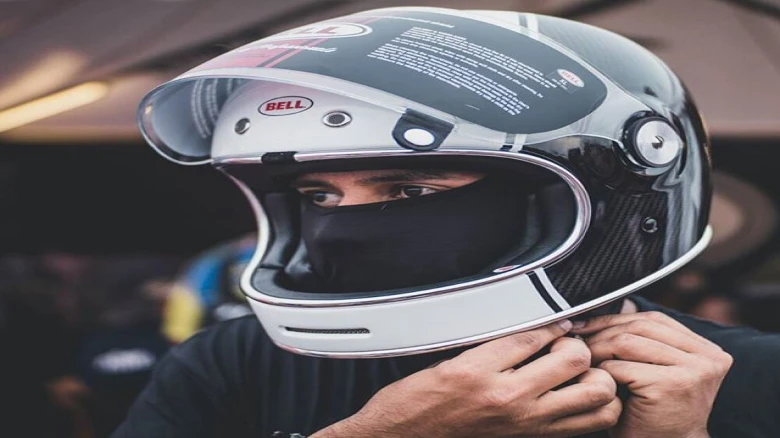Regional

mso-fareast-font-family:"Times New Roman";color:black;mso-bidi-font-weight:
bold"> Digital Desk: To reduce traffic-related deaths and injuries, the World
Health Organization (WHO) has published international recommendations for
decision-makers regarding the usage of helmets.
mso-fareast-font-family:"Times New Roman";color:black;mso-bidi-font-weight:
bold">Experts from the Indian Institute of Technology co-wrote the
recommendations (IIT). It contains guidelines for powered two- and
three-wheeler riders wearing helmets.
color:#424242">
mso-fareast-font-family:"Times New Roman";color:#424242">
mso-fareast-font-family:"Times New Roman";color:#424242">According to the
rules, helmets should cover the entire rider's face and be securely fastened to
provide the greatest level of safety.
mso-fareast-font-family:"Times New Roman";color:#424242">
According to the WHO,
correctly secured full-face helmets can minimize fatal injuries by up to 64%
and brain injuries by up to 74%.
mso-fareast-font-family:"Times New Roman";color:#424242">
mso-fareast-font-family:"Times New Roman";color:#424242">According to Dr. Nhan
Tran, WHO's director of safety and mobility, the use of high-quality helmets
frequently lags behind the rapid growth of powered two- and three-wheeled
vehicles in many developing nations.
mso-fareast-font-family:"Times New Roman";color:#424242">
mso-fareast-font-family:"Times New Roman";color:#424242">"Pedestrians,
especially in developing nations, are frequently exposed to danger because to
insufficient infrastructure. With the rapid proliferation of motorcycles,
scooters, bicycles, and e-bikes, it is imperative that riders wear life-saving
helmets. These guides (guidelines) outline what is effective in saving lives
and are based on successful activities and empirical data, according to Dr.
Tran.
mso-fareast-font-family:"Times New Roman";color:#424242">
mso-fareast-font-family:"Times New Roman";color:#424242">According to PTI,
powered two- and three-wheelers were involved in over 30% of all crash
fatalities reported to the UN body for health care and 43% of all traffic
fatalities in the WHO South-East Asian Region.
mso-fareast-font-family:"Times New Roman";color:#424242">
mso-fareast-font-family:"Times New Roman";color:#424242">The international
organisation for health also released recommendations for pedestrian security.
mso-fareast-font-family:"Times New Roman";color:#424242">According to IIT Delhi
experts, pedestrians are among the most vulnerable road users worldwide.
mso-fareast-font-family:"Times New Roman";color:#424242">
According to the
aforementioned experts, pedestrian deaths increased more rapidly between 2013
and 2016 than all other types of traffic-related mortality. However, it
appeared that many poor nations severely under reported pedestrian fatalities.
mso-fareast-font-family:"Times New Roman";color:#424242">
mso-fareast-font-family:"Times New Roman";color:#424242">According to Geetam
Tiwari, a professor at IIT Delhi, approximately 30% of all fatalities resulting
from traffic accidents in India are pedestrian-related.
mso-fareast-font-family:"Times New Roman";color:#424242">
According to Tiwari, the percentage of pedestrian fatalities
in some of the nation's largest cities can reach 60% of all fatal traffic
accidents.
The researcher from IIT Delhi went on to identify further
efforts that can dramatically increase pedestrian safety, including enhancing
the road environment, bolstering legislation, and enforcement, as well as
initiatives to inform drivers and influence their behaviour.
Leave A Comment